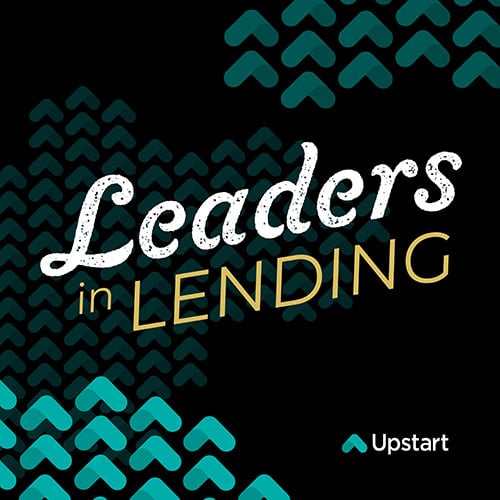Nat Hoopes is the Vice President of Government Relations and Regulatory Affairs at Upstart. He worked as the Executive Director of the Marketplace Lending Association after serving as Vice President and then Executive Director at the Financial Services Forum in Washington D.C., where he worked on public policy issues affecting the nation’s largest financial firms. Hoopes has spent a dozen years working at the intersection of financial services and public policy, including five years on Capitol Hill, where he served as Legislative Director for Senator Scott P. Brown (R-MA), helping lead the bipartisan negotiations of major amendments to the 2010 Dodd-Frank Wall Street Reform and Consumer Protection Act. Hoopes also worked to develop the legislation to expand opportunities for small businesses and innovative startups through equity crowdfunding as part of the Jumpstart-our-Business-Start-Ups (JOBS) Act. Prior to joining Senator Brown, he worked as a policy advisor to Senator Joseph Lieberman (I-D CT). Hoopes’ prior experience includes two years as a private equity investment analyst at Trilantic Capital Partners, where he focused on growth investments and middle market leveraged buyouts in the industrials, insurance, and consumer products sectors. Hoopes holds a BA from Princeton University and a Masters in Law and Diplomacy from the Fletcher School at Tufts University.
Leaders in Lending | Ep. 157
From Polls to Partnerships: Election Season and the NCUA’s Role in Modern Lending
Matt Snow chats with Nat Hoopes, Head of Public Policy at Upstart, and discusses the evolving role of the NCUA, the need for diversified products in credit unions, and Upstart's partnerships with over 100 institutions.


GUEST SPEAKER
Nat Hoopes

ABOUT
Upstart
Upstart is a leading AI lending platform provider that partners with banks and credit unions to help them grow their memberships and expand access to affordable credit. By leveraging Upstart’s all-digital, AI lending platform, Upstart-powered lenders can grow consumer loan portfolios, lend to more creditworthy borrowers safely, and deliver a modern, all-digital experience for their members that allows them to originate loans in minutes. Over 90% of loans funded are fully automated with no human interaction.[1]
Key Topics Covered
- Why insights from real industry professionals outweigh the advice of self-proclaimed "gurus."
- How AI enhances credit access and performance compared to traditional methods.
- The importance of partnerships between credit unions and fintechs to offer diverse products and maintain competitiveness amid regulatory scrutiny.

“There's a very big difference between using AI and all the alternative data as this really helpful additional layer as opposed to just turning over your entire underwriting to some black box.”

“The user experience is everything. If it's going to take days and days to get through the process, [customers are] going to just drop out of the application and go find somebody else who can get it done for them in an efficient manner.”

“Open banking means that our credit unions have a chance to compete for customers that they probably never had a shot at before."
EPISODE RECAP & SUMMARY
Credit unions must innovate to stay ahead.
In a world where technology rapidly reshapes financial systems, there isn’t space to stay stuck in the past. Modern lending isn’t a choice — it’s a survival tactic.
Nat Hoopes, Head of Public Policy at Upstart, recognizes the need for innovation and proper education around new technologies to calm anxieties and uncertainties.
Hoopes is no stranger to change and is taking the AI bull by the horns to help credit unions bring their policies and procedures into the next wave of modern lending.
To do that, it takes the right connections and the proper research.
Why insights from real industry professionals outweigh the advice of self-proclaimed "gurus"
The internet makes it so anyone with a computer can voice their opinion on any topic from shoe polish to politics to best practices in credit unions.
Anyone who spends even a moment on social media can tell you that’s both the best and worst part of being online.
That being the case, it’s crucial to weed out the noise and unresearched opinions to find credible sources and industry professional insights — those are the voices that can have a true impact on company direction and results.
This especially applies to banks and credit unions seeking to adopt fintech. Expert voices like Upstart can help clarify the benefits and real impacts of stepping into modern lending.
These truths were top of mind while starting our partnership with The National Credit Union Administration (NCUA).
“The examiners [at NCUA] — they can be suspicious. They can be skeptical. I think it's their job to be skeptical. There have been a lot of snake oil salesmen through the years saying, ‘This is going to be transformative! This is going to be the greatest thing!’ and then it doesn't always turn out,” Hoopes said.
It’s important to meet that skepticism head-on and show why Upstart is a public company that's built to last and is going to be here for credit unions for a long time.
How Upstart fits into fair lending testing at the NCUA
Upstart is only one piece of the decision when it comes to lending. An applicant's credit criteria are determined by other companies — such as Fair Isaac Corporation — providing their credit score, debt-to-income ratio, etc. The data that determines who is eligible drives a lot of who gets declined or approved. Upstart is the piece that comes in afterward.
“There's a big difference between using AI and all the alternative data as this really helpful additional layer, as opposed to just turning over your entire underwriting to some black box that's not you — that's a different story,” Hoopes said.
Examiners don't always appreciate that type of ambiguity. When they come to examine a credit user signed up for the financial technology provider, they may feel like it’s out of their control. Helping them understand that it’s very much within their control clarifies AI's role in the process.
“It's these other tools that are what is driving the vast majority of who gets credit and who doesn't, and then Upstart that's helping them get a more refined look at those who would qualify within their desired region or other eligibility requirements,” Hoopes said.
For example, it may not be immediately clear why a small loan of $750 requires more data points than a larger sum, but with Upstart, the reasoning is clear.
“People who are at a point in their life where they need to borrow 500 bucks or 750 bucks or 1000 bucks from a financial services provider, they can't come up with that kind of money on their own, you want to understand details about their cash flow,” Hoopes said.
When dealing with small loan amounts, it’s not coming from an applicant who has abundant wealth to manage. Therefore, it’s imperative to understand their full financial picture before approving their loan.
And that’s where solutions like Upstart help pave the way.
Navigating the financial landscape under a new administration
With a new administration incoming no matter which way the outcome goes this election season, it’s important to brace for change.
From financial technology to AI to underwriting around partnerships between regulated supervised institutions and supervised institutions regulated differently, there should be an open dialogue around what the best move is and which players should do what.
“There have been negative headlines, not in the lending area so much, but in things like synapse, bankruptcy, and others,” Hoopes said. “Right now, there's a request for information from the federal regulators about third-party risk management at partnerships. We at Upstart will be responding to that.”
Upstart is also making a point on all of these forums — whether it's the NCUA examiners forum or meeting with the OCC or the FDIC or the attendees' conferences — to spend a lot of time talking about the value, as well as bringing examples of where the rubber meets the road in terms of regulation or implementation of regulation disrupting a partnership.
As an industry, Hoopes believes we must be willing to advocate on behalf of partnerships that have the chance to progress the financial industry forward, both for institutions and their consumers.
Stay tuned for new episodes every other week on the Leaders in Lending Podcast.



